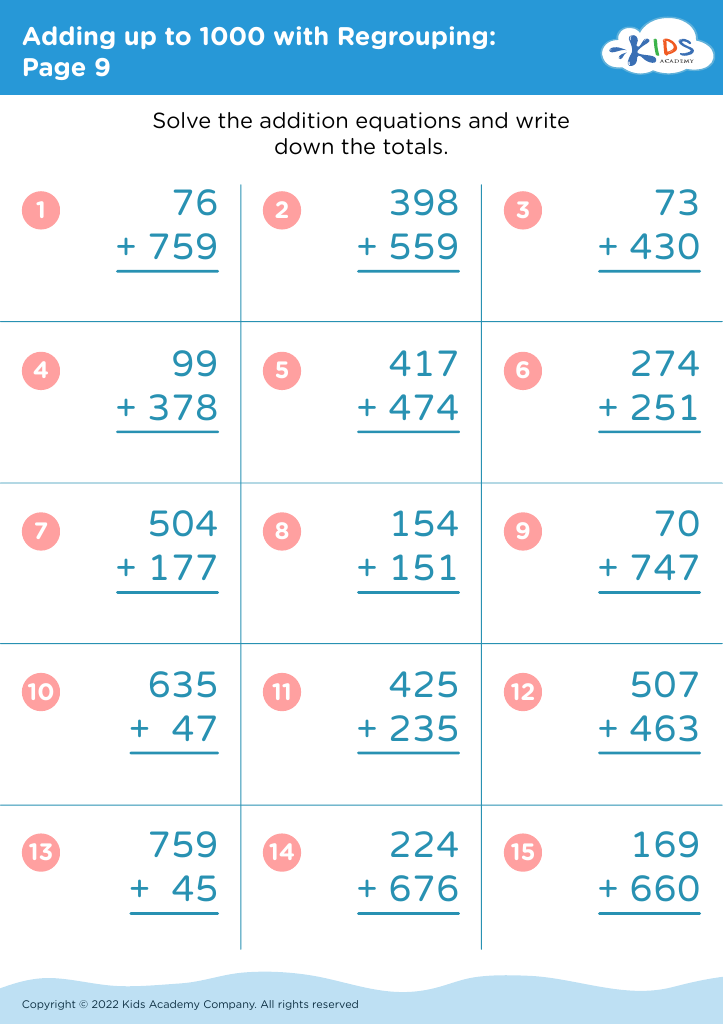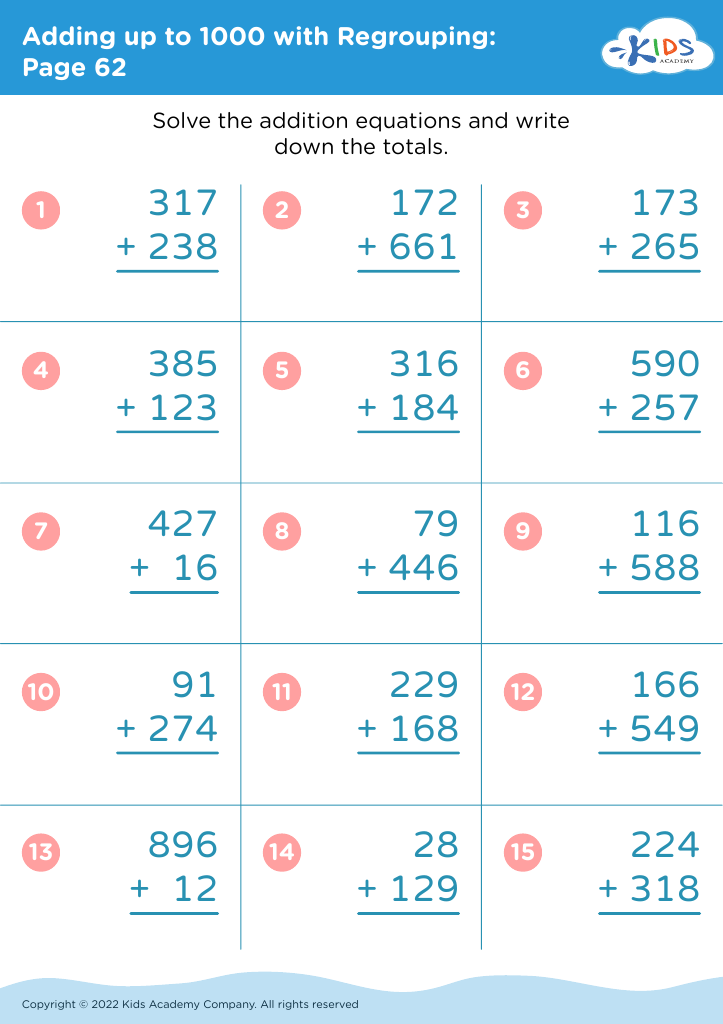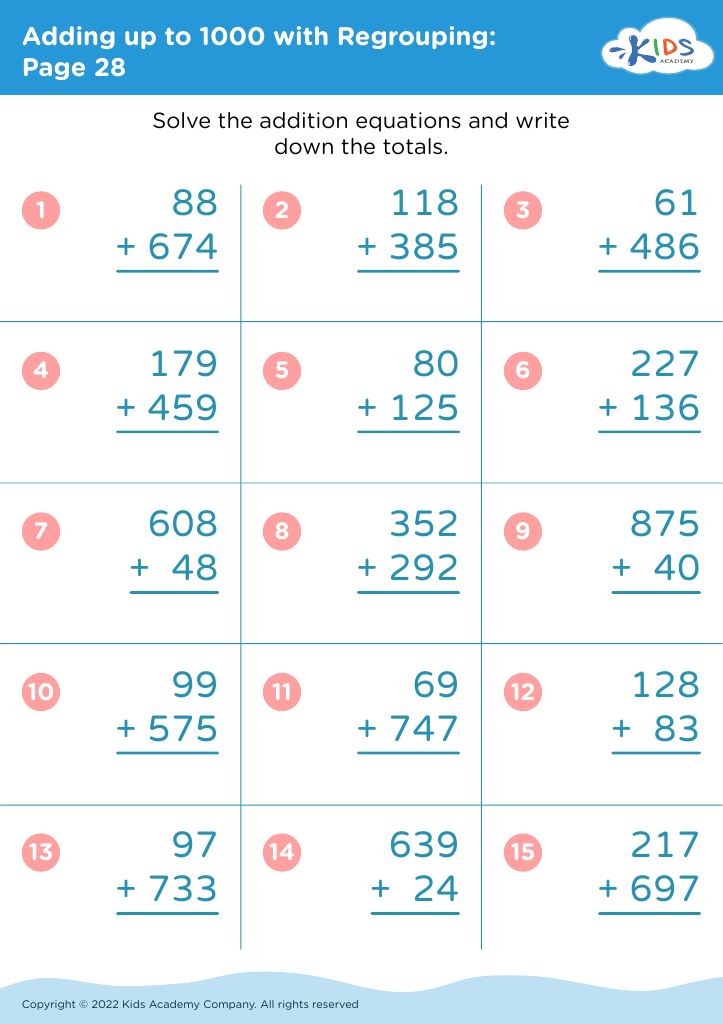Problem-Solving Skills Grade 2 Adding up to 1000 with Regrouping Worksheets
5 filtered results
-
From - To
Enhance your second graders' problem-solving skills with our engaging "Adding Up to 1000 with Regrouping Worksheets." Designed specifically for grade 2 students, these printable resources focus on teaching crucial math concepts like addition and regrouping through fun and interactive problems. Our worksheets encourage logical thinking and help students develop essential skills for tackling multi-step math operations. As they practice, children will learn to break down numbers, confidently handle larger sums, and improve their overall arithmetic abilities. Boost your classroom learning and foster a love for math with our comprehensive and enjoyable problem-solving worksheets today!
Problem-solving skills, especially in the context of second-grade mathematics, are vital for young learners as they lay the foundation for future academic success. Teaching children to add up to 1000 with regrouping equips them with critical thinking abilities and promotes a deeper understanding of numerical concepts. When students learn to regroup, they not only perform addition accurately but also develop the capacity to break down more complex problems later on.
For parents and teachers, fostering problem-solving skills is essential in cultivating resilience and persistence in children. As children face various challenges, developing strategies for solving math problems helps them approach tasks methodically and encourages independence. Learning to regroup is particularly useful in real-life situations, such as budgeting or time management.
Additionally, these skills can enhance a child’s confidence in mathematics, reducing anxiety and building a positive attitude toward the subject. This ultimately leads to improved mathematical proficiency in higher grades and other STEM disciplines. Therefore, by nurturing problem-solving skills through practical application of concepts like regrouping, parents and teachers contribute to a child's overall cognitive development and enable them to thrive academically and personally.



















